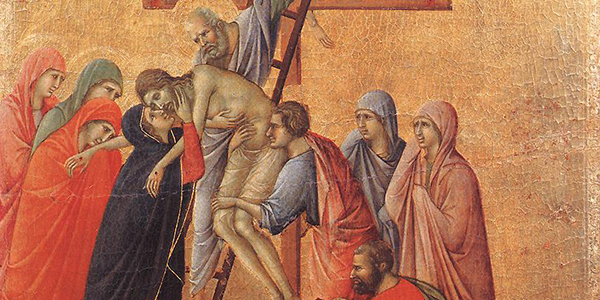
When we discuss the death of Jesus Christ on the cross, we sometimes imply that God died on the cross.
Of course it is reasonable according to standard Christian doctrine to say that by reason of the unity of the person [the person of Christ], that which is proper to one nature is sometimes in Scripture attributed to the person denominated by the other nature.
However, for the non-Christian, this understanding of the doctrine of the hypo-static union of the two natures is not something they can understand, or it is something that they simply refuse to accept.
That being the case, it is better not to use the terms “God” and “man” inter-changeably in reference to Christ’s death on the cross, when we speak to non-Christians.
Even within the orthodox Christian understanding of Christ, we know that the two whole, perfect, and distinct natures, the Godhead and the manhood, were inseparably joined together in one person, without conversion, composition, or confusion.
Therefore, on the basis that God Triune is eternal and cannot “die,” we can conclude that it was only the human nature of Christ which died on the cross, and yet his Divine nature sustained and resurrected Him!
There is really no other argument needed to refute the objection of certain Muslims who say that we claim that God died on the cross. It was necessary that God be manifest in the flesh, in order to make a fleshly sacrifice for the fleshly image of God, namely sinful mankind. This was what Divine justice required. Hence He is not ashamed to call us brethren, and He became like us, without diminishing His Divinity.
Praise God that there is salvation in Jesus Christ, and in Him alone; fully God, and fully man. For when ever else did God ever become man, to sympathize with us? To suffer for us? And rise again from the dead, to conquer sin and death?




